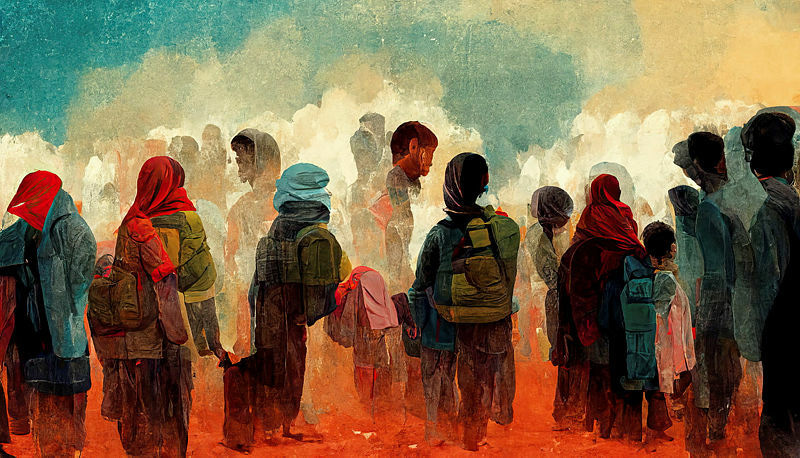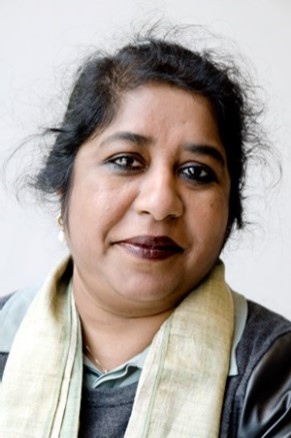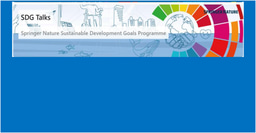World Refugee Day - Wake-up Call for Humanity
Published in Public Health and Law, Politics & International Studies

The refugee has been defined and redefined but regardless of these definitions and the countless images the mind conjures, today’s refugee is tomorrow’s citizen. On World Refugee Day, we must remind ourselves that every refugee is a human being - a reminder for all of us not to forget our humanity. The humane approach drowns in the current political discourse and debates that are largely crisis-driven and focus on gloom and doom. However, the here and the now negative narrative chooses to ignore that the crisis is a wake-up call for addressing the most critical health issues; meeting the health needs of multiethnic societies in a constantly changing environment.
The COVID-19 pandemic was one such wake-up call that revealed that despite the underlying core values of solidarity, equity, and universality, the reality was far from being true to these values. The otherwise agreed-upon SDGs and leaving no one behind are often conveniently forgotten as time and again migrant populations remain unseen, unheard and untreated. According to the recent Lancet Series on Migration and Health, migrant groups face legal, structural, linguistic and cultural barriers that lead to their exclusion from host country healthcare systems. Discrimination and lack of adequate skills and training among healthcare providers worsen disparities in access and increase health inequities. This isn’t just a health crisis; it is a moral reckoning.
Ukraine and Gaza are the most prominent wake-up calls in recent times of population displacements. While the inclusion of Ukrainian nationals under the EU directive was hailed as being the epitome of inclusive health policies exclusion of non-Ukrainian nationals fleeing Ukraine contradicts universal human rights principles. After two years of the war in Ukraine, the issues of integration continue to be challenging; it is not enough to grant asylum or allow people to cross borders. If Ukrainians remain segregated, and out of the workforce despite being overqualified, they will remain on the fringes of the societies they live in!! Though they might be disease-free for the moment, their well-being and overall health will be affected in the long run. While attempts have been made to address the needs of Ukrainians the silence on the shocking health situation of Gaza has been deafening. Common for both Ukraine and Gaza as well as all the other unnoticed refugee situations is the imperative for governments to be held accountable for upholding the rights of all migrants, regardless of origin or circumstances. Ensuring the health and well-being of refugees cannot continue to have a 'band-aid' or a quick-fix approach. We cannot treat people and send them back to the conditions that made them sick in the first place, it is simply a waste of resources for the individual and society.
So how can we turn off the tap rather than simply mopping the floor?? As the right-wing populism and xenophobia surges in Europe, integrating migrant health into all policies is not just necessary—it’s a moral mandate to safeguard the well-being of all populations. With most European countries signatories to the European Convention on Human Rights, acknowledging and addressing migrants’ health needs, irrespective of origin or status, is a duty. Europe must go beyond legal obligations and embrace its moral responsibility to ensure equitable access to health care for all.
The time is now for each one of us to be the change we want to see… This starts with emphasizing the positive impact of migration in creating healthier, more inclusive societies. We must reflect upon the vital role of migration in enhancing population health and fostering diversity in both societal and workplace settings. There is an urgent need to highlight the constructive contributions of migrants and refugees. Our aim has to be a Healthy, Racism-Free, Multi-Ethnic World!! If not we need to quickly find another planet and given the way we are ill-treating planet Earth we might just have to.
 Bernadette Nirmal Kumar, a medical graduate from St. Johns Medical College, India, has a doctorate in Epidemiology and Public Health from the University of Oslo, Norway and a post-doctoral research fellowship at the Institute for Psychiatry, University of Oslo. Kumar has several years of international experience working for UNICEF, WHO, WFP, World Bank and NORAD in Southern Sudan, Somalia, Northwest Kenya, West Bank and Gaza, North Korea, China and Bhutan (1989-2000). In 2010, she was appointed Director of NAKMI -Norwegian Centre for Migration and Minority Health (part of the Norwegian Institute of Public Health, 2018) and Associate Professor, Global Health at the Institute for Health and Society, University of Oslo (2013). She is a Professor at the Empower School of Health, in India and an Affiliated Professor at Kathmandu University, Nepal. She is the Chair of the Global Society on Migration, Ethnicity, Race and Health (2018-) and the President of the EUPHA Section of Migration and Ethnic Minority Health (2018-) She led the Migration Health work package of the EU Joint Action on Health Inequalities. Kumar was the Lancet Commission on Migration and Health (2018) and is Co-chair of Lancet Migration and Co-chair of the Lancet Migration Regional HUB Europe. She is Vice President of Women in Global Health, Norway Chapter. Migration and Health have been the focus of her research since 1999.
Bernadette Nirmal Kumar, a medical graduate from St. Johns Medical College, India, has a doctorate in Epidemiology and Public Health from the University of Oslo, Norway and a post-doctoral research fellowship at the Institute for Psychiatry, University of Oslo. Kumar has several years of international experience working for UNICEF, WHO, WFP, World Bank and NORAD in Southern Sudan, Somalia, Northwest Kenya, West Bank and Gaza, North Korea, China and Bhutan (1989-2000). In 2010, she was appointed Director of NAKMI -Norwegian Centre for Migration and Minority Health (part of the Norwegian Institute of Public Health, 2018) and Associate Professor, Global Health at the Institute for Health and Society, University of Oslo (2013). She is a Professor at the Empower School of Health, in India and an Affiliated Professor at Kathmandu University, Nepal. She is the Chair of the Global Society on Migration, Ethnicity, Race and Health (2018-) and the President of the EUPHA Section of Migration and Ethnic Minority Health (2018-) She led the Migration Health work package of the EU Joint Action on Health Inequalities. Kumar was the Lancet Commission on Migration and Health (2018) and is Co-chair of Lancet Migration and Co-chair of the Lancet Migration Regional HUB Europe. She is Vice President of Women in Global Health, Norway Chapter. Migration and Health have been the focus of her research since 1999.
Follow the Topic
-
Conflict and Health

This is a highly-accessed, open access journal documenting the public health impacts and responses related to armed conflict, humanitarian crises and forced migration.
Related Collections
With Collections, you can get published faster and increase your visibility.
Systematic Reviews in Conflict and Humanitarian Health
Armed conflict, humanitarian crises, and forced migration continue to pose profound challenges to public health systems worldwide. In these settings, evidence gaps are common, data collection is constrained by insecurity, and health needs evolve rapidly. Systematic reviews play an essential role in consolidating fragmented evidence, evaluating intervention effectiveness, and guiding policies and responses that can save lives in some of the world’s most vulnerable contexts.
This collection brings together high‑quality systematic reviews and evidence syntheses that advance understanding of the public health impacts of conflict and crises, and that evaluate strategies to improve health outcomes for affected populations. We welcome submissions addressing the full breadth of topics within Conflict and Health, including:
-Infectious disease prevention and control, outbreak preparedness, and surveillance in unstable or resource‑limited settings
-Nutrition, food security, and interventions to address undernutrition in crisis-affected populations
-Reproductive, maternal, newborn, and child health in conflict and displacement
-Sexual and gender-based violence, its determinants, and response mechanisms
-Mental health and psychosocial support, including trauma, resilience, and service delivery models
-Non-communicable diseases in humanitarian and conflict settings
-Health systems and service delivery under conditions of fragility, disruption, or deliberate attack
-Ethical considerations related to health research, intervention design, and humanitarian practice in conflict-affected communities
This collection seeks to advance both scholarship and practice by championing evidence synthesis that drives equitable, ethical, and effective health interventions in conflict and humanitarian settings.
All submissions in this collection undergo the journal’s standard peer review process. As an open access publication, this journal levies an article processing fee (details here). We recognize that many key stakeholders may not have access to such resources and are committed to supporting participation in this issue wherever resources are a barrier. For more information about what support may be available, please visit OA funding and support, or email OAfundingpolicy@springernature.com or the Editor-in-Chief.
Publishing Model: Open Access
Deadline: Nov 10, 2026
Health, Conflict and Forced Displacement: reimagining the humanitarian system
Conflict and Health welcomes invited authors to submit an article to our new series, “Health, Conflict and Forced Displacement: reimagining the humanitarian system”– a collection emerging from the work produced by the CHH-Lancet Commission on Health, Conflict and Forced Displacement.
Humanitarian crises are becoming increasingly complex, characterized by repeated violations of International Humanitarian Law and shrinking space for effective response. At the same time, opportunities exist to create a more accountable, inclusive, and effective humanitarian system. Central to this effort are approaches that place local actors at the heart of the response, allocate funding based on need, implement evidence-based interventions, and harness technology. Equally important is ensuring that the voices of affected populations, including refugees, internally displaced persons, and communities living in conflict settings, inform decision-making.
This Collection welcomes primary research, methods papers, and reviews that advance knowledge and practice in reimagining the humanitarian system. Submissions may focus on the core drivers of humanitarian action such as governance, principles, financing, and technology (including artificial intelligence), as well as cross-cutting themes such as social determinants of health in humanitarian settings, protection and health of populations in situations of particular vulnerability, and localization and equitable partnerships.
Through this Collection, we aim to bring together diverse perspectives to critically examine and strengthen the future of humanitarian action with a focus on public health, ensuring that it is more responsive, just, and centered on those most affected by conflict and displacement.
Please note that this Collection does not accept submissions from uninvited authors.
All submissions in this collection undergo the journal’s standard peer review process. Similarly, all manuscripts authored by a Guest Editor(s) will be handled by the Editor-in-Chief. As an open access publication, this journal levies an article processing fee (details here). We recognize that many key stakeholders may not have access to such resources and are committed to supporting participation in this issue wherever resources are a barrier. For more information about what support may be available, please visit OA funding and support, or email OAfundingpolicy@springernature.com or the Editor-in-Chief.
Publishing Model: Open Access
Deadline: Jul 27, 2026





Please sign in or register for FREE
If you are a registered user on Research Communities by Springer Nature, please sign in